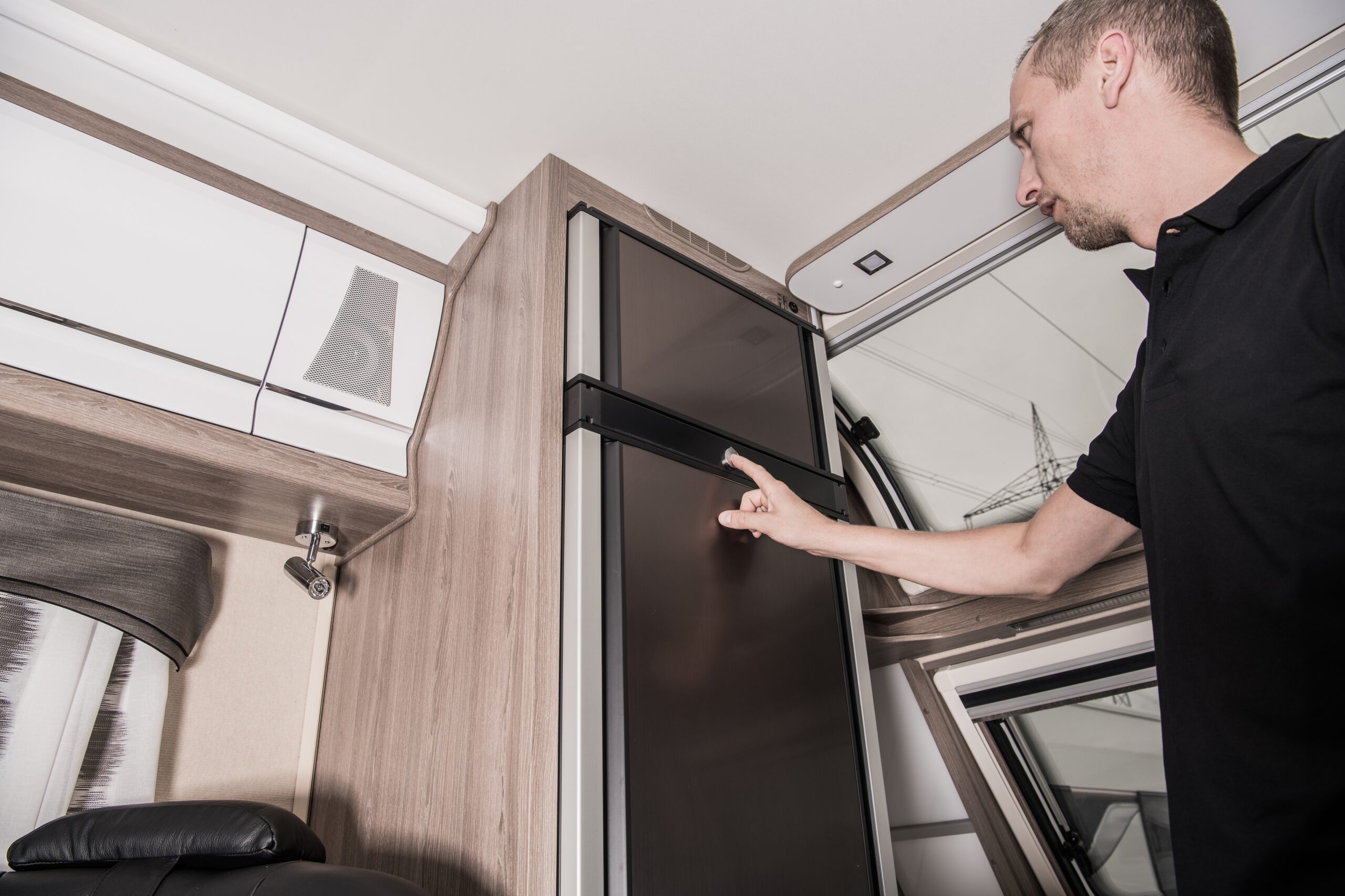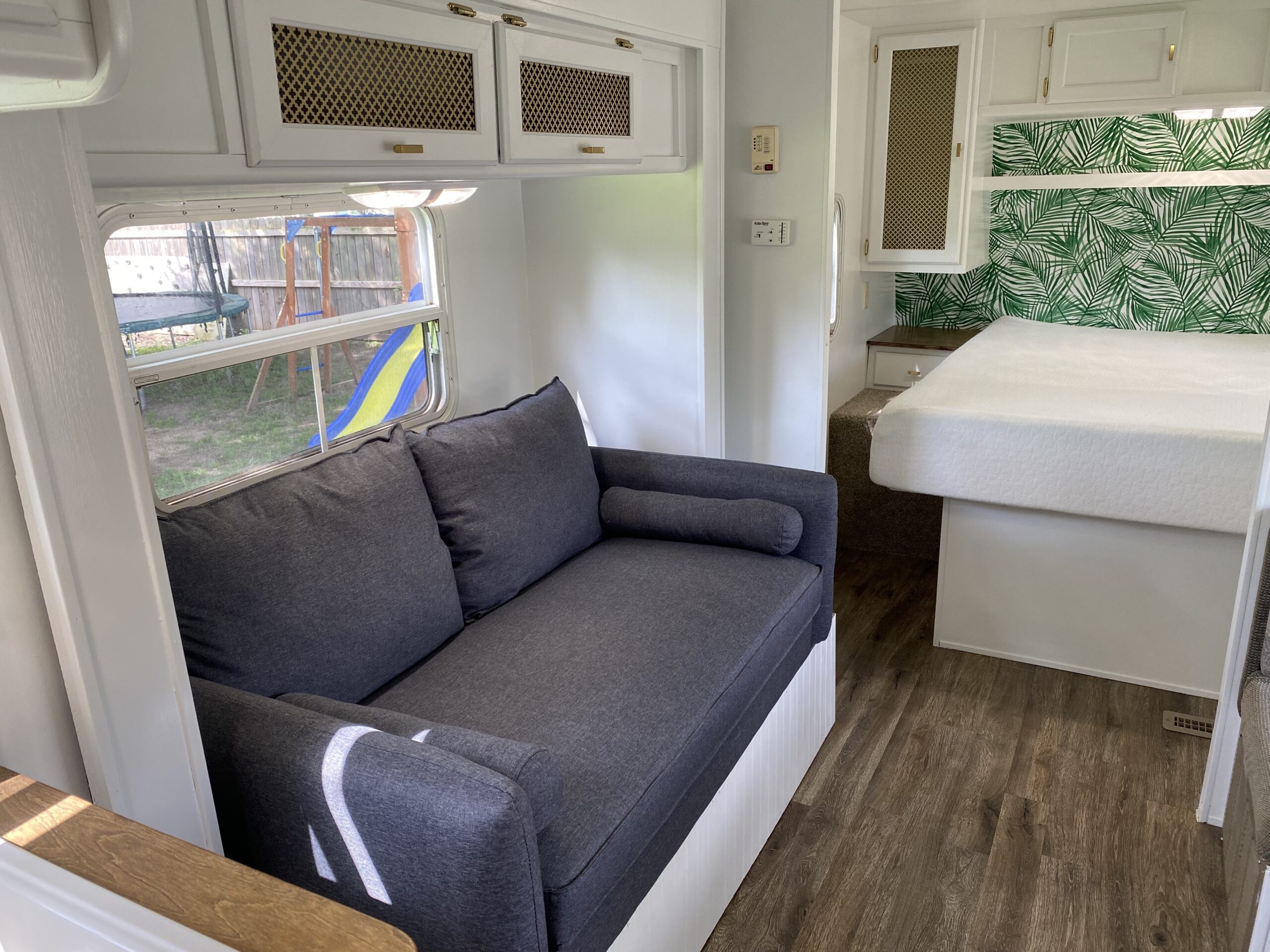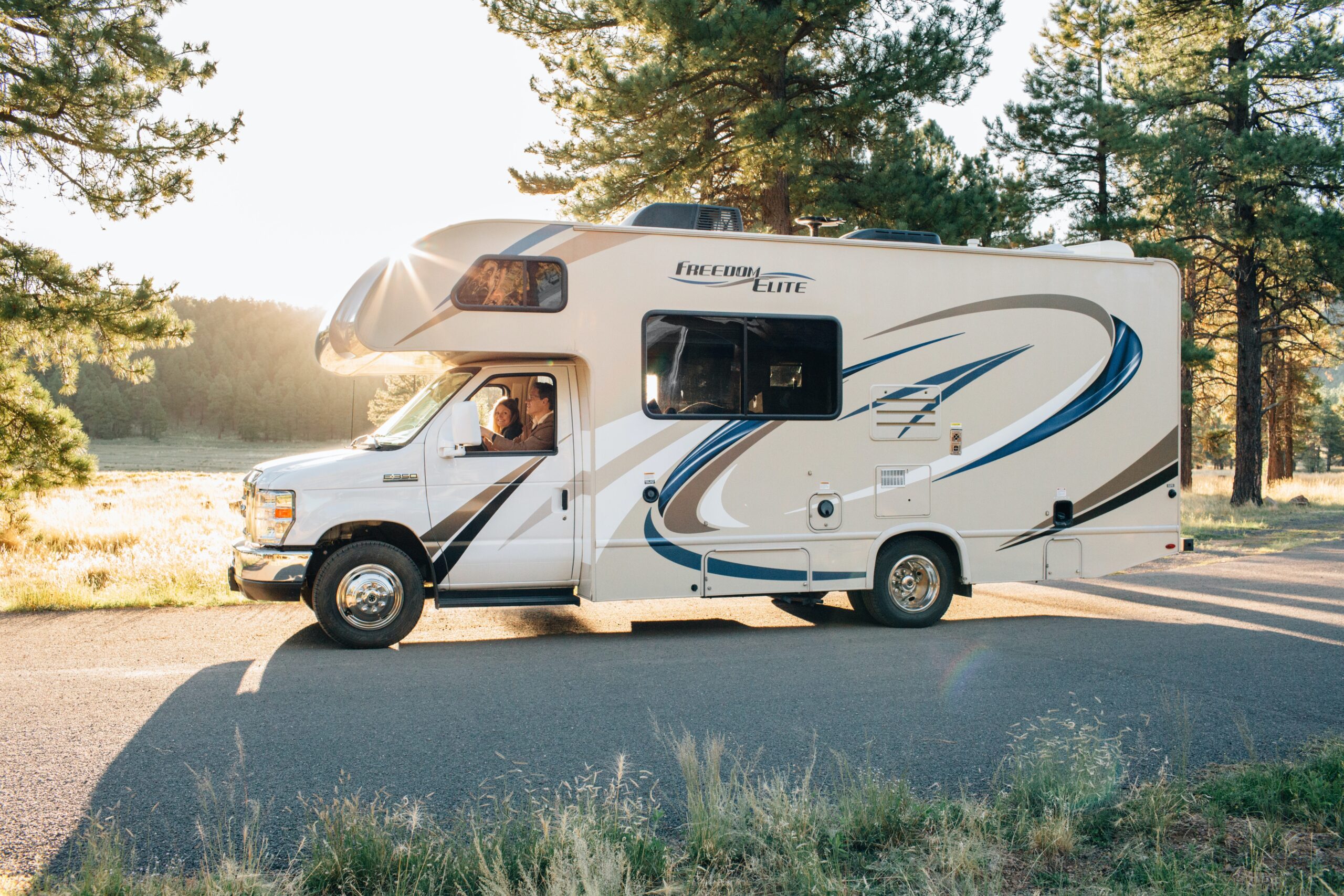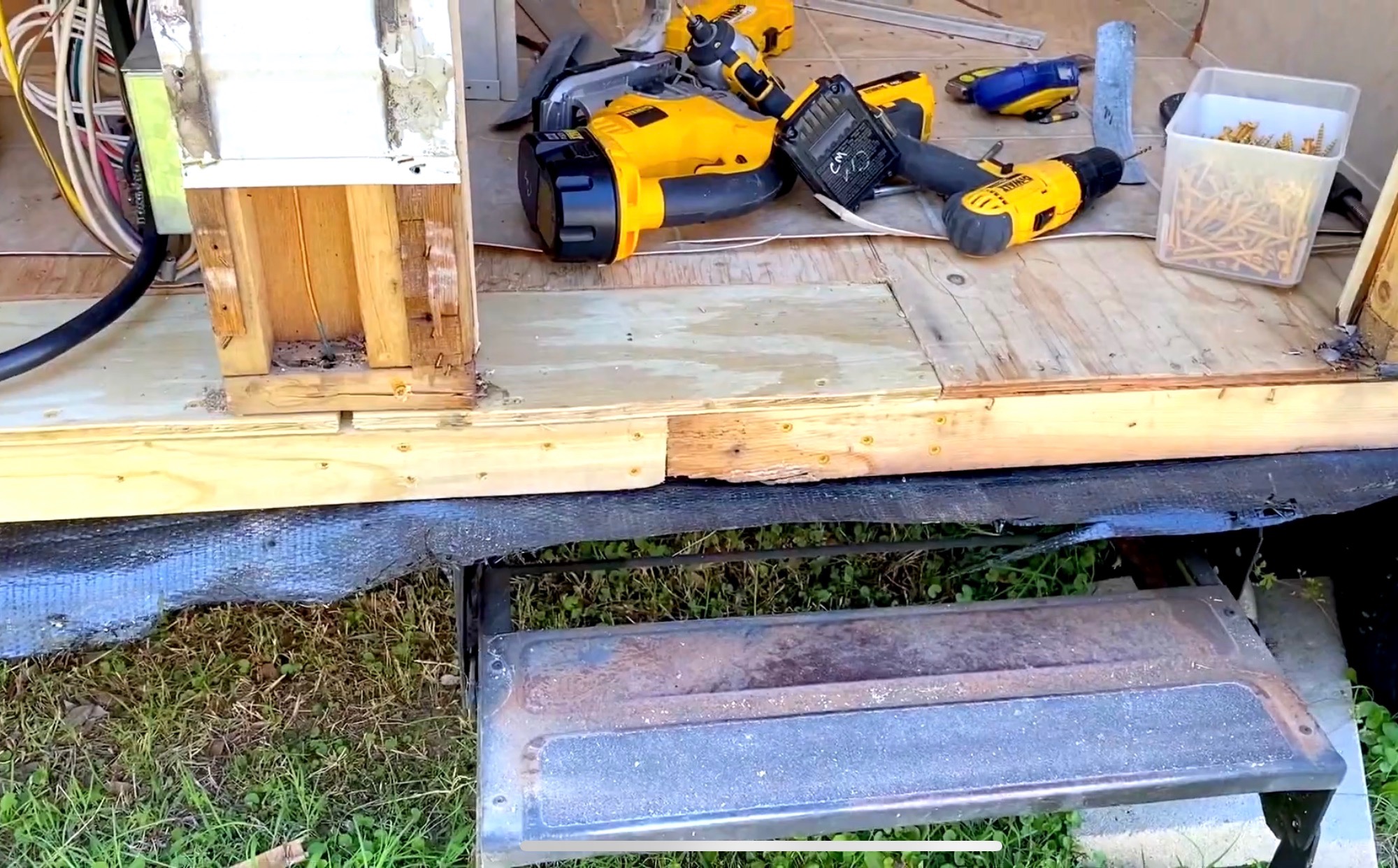Many RV owners experience the frustrating situation of their refrigerators not cooling sufficiently during hot weather. This common issue can impact the quality and safety of stored food, making it a priority to find a solution. Throughout this article, we will explore the possible reasons behind this problem and provide valuable tips and tricks to help resolve it.
A well-functioning RV refrigerator relies on proper ventilation and adequate cooling capabilities. In sweltering conditions, however, even perfectly maintained units can struggle to keep up with the heat. External factors such as parking in direct sunlight or inadequate ventilation can worsen the situation. Understanding these challenges, we will delve deeper into specific troubleshooting methods to improve your fridge’s cooling performance in hot weather.
From checking the correct temperature settings to ensuring that the freezer compartment is completely thawed out, these actionable steps will target the root causes of the reduced cooling abilities of your RV refrigerator. Remember that the goal is to keep your food safely chilled while making the most of your RV adventures during the warm summer months.
Why RV Refrigerators Struggle in Hot Weather
Absorption Refrigeration Process
RV refrigerators operate differently from residential ones. They use the absorption refrigeration process rather than traditional compressor-based cooling. This process relies on heat to generate a cycle of evaporation and absorption that ultimately cools the fridge’s interior. However, during hot weather, the external heat can impact the efficiency of this method, making it challenging to maintain a cool temperature inside the refrigerator.
Insulation and Ventilation
Another factor contributing to the struggles of RV refrigerators in hot weather is insulation and ventilation. RV fridges require proper insulation and venting to minimize the effects of external heat on their cooling system. However, heat can still transfer from outside and affect the fridge’s interior, especially if it’s parked directly in the sun during summer months.
To help improve the performance of an RV refrigerator in hot weather, consider the following tips:
- Park in the shade: Whenever possible, park your RV with the fridge side facing away from the sunlight or in a shaded area, as it can help reduce the impact of heat on the cooling system.
- Pre-cool the refrigerator: Before stocking your RV fridge, turn it on at least 24 hours in advance to allow it to cool down properly. This can help it better maintain a lower temperature in hot weather.
- Check the door gasket: Another essential tip is to make sure the refrigerator door closes tightly. Inspect and clean the door gasket regularly, and replace it if necessary, to ensure minimal loss of cool air.
- Promote air circulation: Place a small fan on the bottom shelf of the fridge to help distribute cool air evenly throughout the refrigerator and counteract the hot air pocket.
- Avoid shelf liners: Plastics or liners placed on shelves may block airflow, so avoid using them in an RV refrigerator.
Remember, the absorption refrigeration process used in RV fridges relies heavily on external conditions, making them more susceptible to hot weather challenges. By taking some practical measures, you can help improve their cooling efficiency and enjoy a refreshing summer RV experience.
Common Reasons for RV Refrigerator Cooling Issues
Blocked or Dirty Vents
One common reason for an RV refrigerator not cooling well in hot weather is blocked or dirty vents. When the vents are obstructed, the heat generated by the cooling unit cannot be adequately expelled. As a result, the cooling efficiency decreases, and the fridge may not cool properly. To troubleshoot this issue, make sure to regularly clean and inspect the vents for any blockages or debris. This will help maintain optimal cooling power and functionality.
Heating Element Malfunction
Another factor that can contribute to RV refrigerator cooling issues is a malfunctioning heating element. The heating element plays a crucial role in the cooling process, as it helps to circulate ammonia through the coils to aid with heat dissipation. If the electrical heating element is not functioning properly, the cooling unit won’t be as efficient. You can troubleshoot this issue by checking the heating element for any signs of damage or corrosion, and replacing it if necessary.
Thermistor Issues
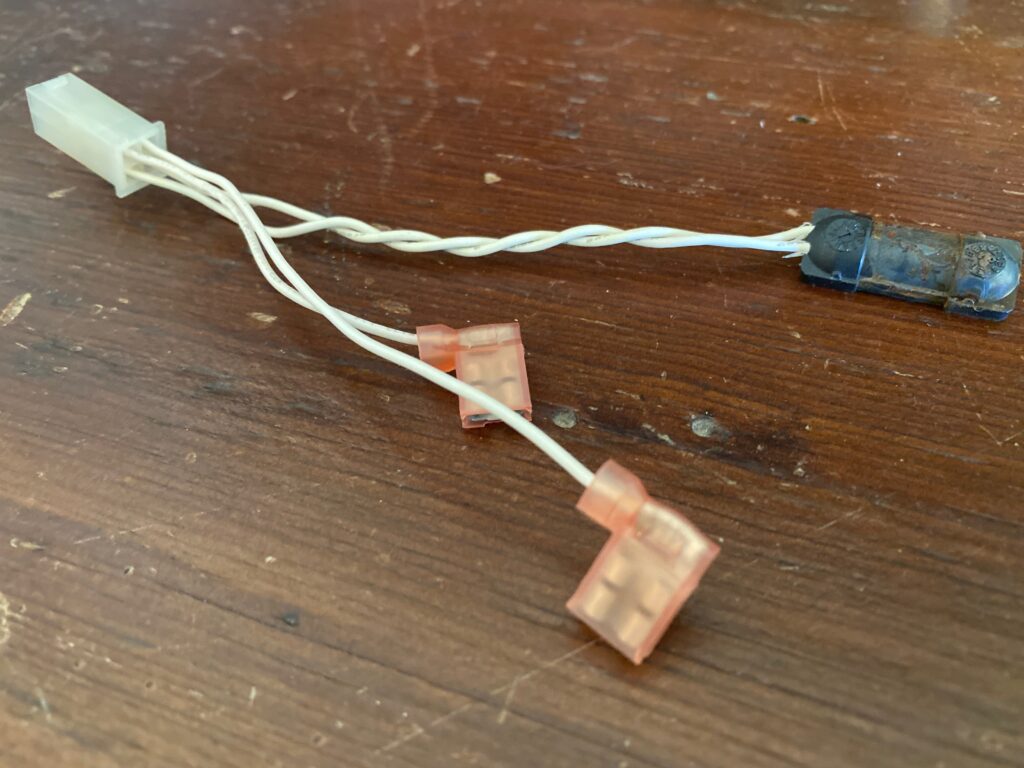
Thermistor issues can also lead to problems with your RV refrigerator’s cooling efficiency. A thermistor is a thermostat-like component that regulates the temperature inside the refrigerator by signaling the cooling unit to turn on or off. If the thermistor is faulty or malfunctioning, the cooling unit may not receive appropriate signals, leading to an inability to maintain the desired temperature. To troubleshoot this issue, check the thermistor’s resistance at different temperatures using a multimeter and replace it if its readings are outside the acceptable range.
Gas Circuit Problems
Gas circuit problems, such as issues with the gas valve, flame sensor, or igniter, can also cause the RV refrigerator to malfunction in hot weather. If the gas circuit is not operating properly, the fridge will not be able to utilize its propane gas mode effectively. This can result in poor cooling performance. To troubleshoot, inspect the gas valve for blockages and ensure proper gas flow, check the flame sensor for alignment or damage, and verify that the igniter is producing a consistent spark.
By addressing these common causes of RV refrigerator cooling issues, you should be able to improve the fridge’s performance and keep your food and beverages at the proper temperature during those hot summer months.
RV Refrigerator Troubleshooting Steps
Inspect and Clean Vents
One of the first things to do when your RV refrigerator is not cooling in hot weather is to inspect and clean the vents. It’s crucial for the fridge to be properly ventilated, as it needs to reject the heat generated inside. Start by checking the exterior and interior vents for any obstructions, such as dirt, debris, or insect nests. If you find any, clean them out thoroughly. Additionally, consider installing an RV fridge fan to improve ventilation and performance in hot weather.
Check the Heating Element
The heating element is an essential component of your RV refrigerator, as it helps in the circulation of the ammonia coolant. To troubleshoot this part, make sure the fridge has power by checking the 120V power circuit. If there is no power, examine the breakers and the circuit. Should the problem persist, it’s time to inspect the heating element itself for any signs of damage or malfunction. If needed, replace the faulty heating element to restore proper cooling.
Test the Thermistor
The thermistor is a temperature sensor responsible for regulating the refrigerator’s cooling system. If your RV fridge is not cooling efficiently, it’s essential to test the thermistor. You can do this by consulting your refrigerator’s manual for instructions on testing the specific thermistor model. If the thermistor is found to be defective, replace it to ensure your fridge maintains the correct temperature.
Examine Gas Circuit Components
Lastly, take the time to examine the gas circuit components of the RV refrigerator. This includes the thermostat, which regulates the fridge’s temperature by controlling the flow of gas to the burner. Check the thermostat for any signs of malfunction and replace it if necessary. Also, inspect the gas line connections, the burner assembly, and the gas valve for any leaks, damage, or debris that may impact the refrigerator’s performance.
Maintaining Your RV Refrigerator in Hot Weather
Proper Insulation and Ventilation
Proper insulation and ventilation are crucial for maintaining an efficient RV refrigerator in hot weather. Ensuring that the fridge’s heat exchanger has enough space will help optimize its performance. Check the refrigerator’s vents regularly for any obstructions, and clear them if necessary to allow proper airflow. It’s also a good idea to inspect the insulation around the fridge, making sure it is in good condition and providing adequate thermal protection.
Shading Your RV Fridge
Shading your RV fridge can play a significant role in keeping it cool in hot weather. Park your RV in a shaded area or position it in such a way that direct sunlight does not reach the refrigerator. You can also use an exterior shade cloth or similar materials to block sunlight from directly hitting the fridge, which will help to reduce the overall temperature and improve its efficiency.
Regular Cleaning and Maintenance
Regular cleaning and maintenance are vital for ensuring your RV refrigerator operates at peak performance in hot weather. Vacuum the coils with a brush attachment or use a coil-cleaning brush to remove any dust or debris build-up. Also, clean the inside of the fridge with mild soap and a warm water solution. Stay up to date with your refrigerator’s maintenance schedule, especially when it comes to replacing any worn parts or seals.
Using Fans to Improve Airflow
Fridge fans can greatly enhance the airflow around the refrigerator coils, which is essential for maintaining its cooling performance in hot weather. There are RV fridge fans available that can help ensure the fridge gets adequately ventilated. These fans work by circulating the air around the coils, reducing the time it takes for the heat to dissipate and allowing the fridge to cool more effectively.
By implementing these strategies, you can help your RV refrigerator maintain a consistent temperature in hot weather and avoid potential food spoilage issues. Remember, the key is to focus on insulation, ventilation, shading, regular cleaning, and using fans to improve airflow around your fridge.
Alternatives to RV Refrigerators
Sometimes the traditional RV refrigerator may not suit your needs or you may encounter issues when dealing with hot weather. So, it’s essential to consider some alternatives to keep your perishables fresh and cool during your adventures. This section will discuss various options like residential refrigerators, solar-powered refrigeration, air conditioners, and ice chests.
Residential Refrigerators
One alternative to the traditional RV fridge is the use of residential refrigerators. These appliances typically utilize a condenser to cool the internal temperature, offering a more consistent and efficient cooling solution. They are designed for more constant use and can withstand higher temperatures, making them an excellent choice for those experiencing issues with RV fridges in hot climates. The downside, however, is that residential refrigerators often require a more robust electrical system, so you’ll need to ensure your RV can support the additional power requirements.
Solar-Powered Refrigeration
Solar-powered refrigeration is an eco-friendly option for RV users who want to harness the power of the sun to cool their food and beverages. By using solar panels, the energy collected can power a refrigerator specifically designed for use with solar technology. This option not only cuts down on energy consumption but also eliminates the need for traditional fuels like propane. While the initial investment may be higher, the long-term benefits of using solar power for your refrigeration needs are worth considering.
Air Conditioners
To compensate for the increased heat in hot weather, another solution is using air conditioners to maintain the overall temperature of your RV. While this won’t directly cool your RV refrigerator, it will help maintain a more suitable environment for it to function efficiently. In addition, investing in an air conditioning system for your RV can provide added comfort for you and your family during the hot summer months.
Ice Chests
Lastly, ice chests can be a practical and cost-effective alternative to RV refrigerators in hot weather. These portable coolers are simple to use, requiring only ice or ice packs to maintain their temperature. The advantage of ice chests is their portability, allowing you to bring them to more remote locations where electricity may not be available. However, they do require regular replenishment of ice, and their cooling capacity may not be sufficient for extended periods.
While this section has explored several alternatives to RV refrigerators in hot weather, it’s essential for each individual to assess their specific needs and constraints when choosing the best option for their RV lifestyle. Each alternative has its own set of advantages and drawbacks to consider, but with the right choice, you can ensure a more enjoyable and comfortable journey through the heat.
Conclusion
In conclusion, keeping an RV refrigerator cool in hot weather can be a bit challenging, but it’s definitely achievable with some smart strategies. One of the main reasons for reduced cooling efficiency is the build-up of dust and debris on the refrigerator’s coils. Regular maintenance and cleaning will help ensure the refrigerator operates at its best.
It’s essential to understand how an absorption refrigerator works to help it function more efficiently. A heat source, either a flame or a heat element, heats up a solution of ammonia, hydrogen, sodium chromate, and water to enable the cooling process. Keeping the external parts of the refrigerator clean and free from obstructions can help the heat exchange process work smoothly.
It’s a good idea to turn on the refrigerator at least 4-6 hours before planned departure to allow it to cool sufficiently. During hot weather, drivers must monitor the temperature inside the refrigerator and make adjustments as needed, such as parking the RV in a shaded area, to help keep the interior cool.
In the end, a well-maintained RV refrigerator can handle hot weather, but it requires some extra attention to make sure it stays at a safe and comfortable temperature. By implementing these tips and strategies, people can enjoy fresh and cool food during their summer RV adventures.

